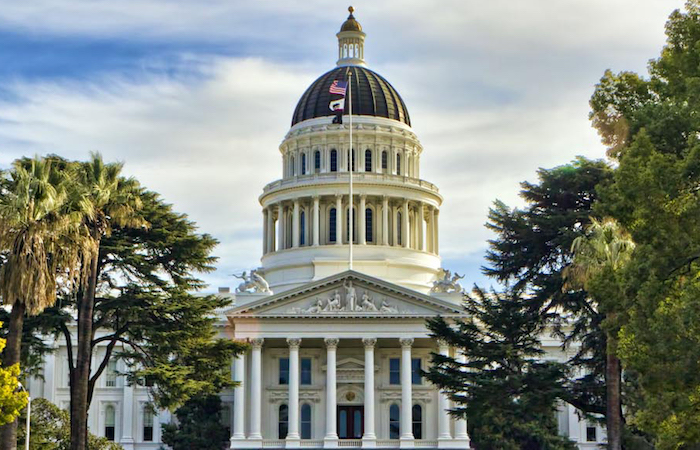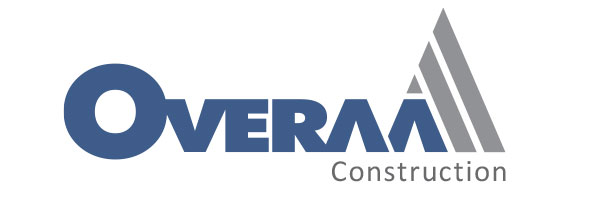CBPA’s California Legislative Update 5/3/19

- CBPA OVERWHEMINGLY OPPOSES LAUSD’S MEASURE EE
- PROP. 13 WOULD BE GUTTED BY SCA 5
- ALL HOPE IS NOT LOST: DEMS QUIETLY KILLING SOME BAD BILLS
- JOB CREATORS!
- CBPA 2019 CALENDAR
CBPA OVERWHEMINGLY OPPOSES LAUSD’S MEASURE EE
California Business Properties Association leadership has overwhelmingly voted to oppose Measure EE, a $500 million property tax on all homes, apartments and business properties within the boundaries of the Los Angeles Unified School District (LAUSD) that will appear on the June 4, 2019 special election ballot.
Rex Hime, President and CEO stated, “We have been sounding the alarm on the use of parcel taxes like Measure EE to raise property tax revenue in a way that circumvents Proposition 13. Measure EE is particularly nefarious and a de facto split roll as it is a per square foot parcel tax, not just a flat rate per parcel as is the standard. This means that business properties and multi-family housing will pay by far the lion’s share of the tax.”
In 2018 alone, there were 100 parcel taxes on California ballots and Measure EE is the second property tax increase in just two years for LAUSD.
Hime continued, “Measure EE won’t be the end of the assault on property taxes. It is simply another step to dismantle Prop. 13 protections.”
The split roll property tax initiative on the November 2020 ballot played a key role in the LAUSD teachers’ strike as the new contract calls for Mayor Garcetti to endorse the measure and work with both the union and the LAUSD in advocating for its passage.
Additionally, this new property tax is coming on the heels of last November’s stormwater parcel tax (Measure W).
Additionally, CBPA leadership stands in unison with other business groups in calling Measure EE an ill-conceived tax calling out the following issues:
- Measure EE does not require any fundamental reform that will address the school district’s financial woes.
- Measure EE has no oversight to guarantee this money will be spent on students or in classrooms.
- Measure EE mainly funds long-term healthcare and pension benefits for LAUSD employees and does not go into improving classroom instruction.
Although CBPA does not normally get involved with local elections, our leadership believes Measure EE is part of a statewide assault on the fundamental protections provided by Proposition 13 and have authorized the organization to fight this measure through communication, funding, and member action.
PROP. 13 WOULD BE GUTTED BY SCA 5
A bill that will gut the Proposition 13 protections property owners have in this state is scheduled for hearing in the Senate Elections and Constitutional Amendments Committee on Tuesday.
We strongly Oppose SCA 5, a bill which would allow school districts to increase property taxes with a 55 percent approval of the voters participating in the election – instead of a two-thirds vote of the district’s electorate as currently required under the State Constitution – if the proposition is approved by the school governing board and includes certain requirements, as specified. The measure also would facilitate various local tax increases by lowering the minimum voter approval to a percentage of the voters participating in the election instead of the district’s qualified voting electorate.
This bill would gut Prop 13 by removing the longstanding protections of that landmark measure that requires a 2/3 vote to increase property taxes for certain activities. Coupled with local measures like EE in Los Angeles and statewide measures like the Split Roll ballot measure on next November’s ballot, we are seeing one of the most brazen and coordinated attempts to raise your property taxes that we have ever seen.
Don’t let this happen. Contact us now to find out how you can help push back all these threats.
ALL HOPE IS NOT LOST: DEMS QUIETLY KILLING SOME BAD BILLS
A story in CalMatters outlines a new practice that the Assembly Gigamajority of Democrats has adopted this session in order to deal with some of the hottest political potatoes – just don’t give them a hearing. And it’s causing some members of the majority party to squabble. This is an interesting read, for those political junkies interested in how the overwhelming numbers of one party is affecting the day-to-day activity in the Capitol.
Click here to see how powerful lawmakers are killing California bills—without a peep.
JOB CREATORS!
Believe it or not, there is a lot of good bills in the Legislature. Unfortunately, they just seem to get overwhelmed by all the really bad bills. The California Chamber of Commerce has released its list of Job Creator bills, calling attention to nine bills that will stimulate the economy and improve the state’s jobs climate. We are working with the CalChamber and other business groups to support these measures:
AB 23 (Burke; D-Inglewood) Workforce Coordination. Establishes the Deputy of Business and Workforce Coordination, which will help provide California with a workforce that is employment-ready and trained in industry sectors that have the greatest workforce needs.
AB 371 (Frazier; D-Discovery Bay) Creates Incentives for Freight Efficiency. Creates and maintains job growth in the freight sector by providing incentives to purchase clean fleet technology, evaluating appropriate public and private resources that can be used to ensure freight competitiveness in California, and confirming that agencies are engaging in programs that maintain resilience against economic downturns.
AB 906 (Cooley; D-Rancho Cordova) Economic Development Plan. Creates the California Economic Development Strategic Action Plan within the office of GO-Biz, to develop a comprehensive agenda that evaluates various economic factors, including emerging and growing industries, to set statewide economic goals to increase California’s national and international competitiveness.
AB 1195 (O’Donnell; D-Long Beach) Encourages Technological Innovation. Gives credit under the Low Carbon Fuel Standard to innovative crude technologies, including carbon capture and sequestration, energy storage, and renewable natural gas or biogas. Creates jobs by encouraging the development of new technology to meet California’s ambitious climate change goals.
AB 1303 (O’Donnell; D-Long Beach) Career Technical Education. Increases funding for the Career Technical Education Incentive Grant program, which provides students with relevant, industry-aligned skills training and instruction to prepare them for California’s changing job market.
AB 1545 (Obernolte; R-Big Bear Lake) Small Business Penalty Relief. Recognizes the challenges small businesses face in implementing complex state rules by allowing adjustment of civil penalties based upon specific mitigating factors, which allows these small businesses to invest more financial resources into growing their workforce.
SB 601 (Morrell; R-Rancho Cucamonga) License Relief for Disaster Victims. Allows, but does not require, state agencies that issue business licenses to reduce or waive required fees if the applicant establishes that they were displaced or affected by a declared state or federal emergency within the preceding year, which allows impacted businesses the ability to invest more of their financial resources into re-establishing their business and jobs.
SB 621 (Glazer; D-Orinda) CEQA Streamline for Affordable Housing. Would streamline litigation and thereby lower the cost to construct affordable housing projects meeting specified environmental criteria and certified under an environmental impact report by requiring that any CEQA actions challenging such projects be resolved by a court within 270 days. This reduction in litigation and costs will expedite these projects, provide more housing for workers, and additional jobs.
SB 659 (Borgeas; R-Fresno) CEQA Attorney’s Fees. Would minimize frivolous CEQA litigation challenging housing projects, thereby helping to streamline their construction and reducing costs, by requiring a court to award reasonable attorney’s fees to a prevailing respondent or real party in interest in CEQA cases challenging the development of infill housing. This reduction in litigation and costs will expedite these projects, provide more housing for workers, and additional jobs.
CBPA 2019 CALENDAR
June 11 – 12, 2019
California Commercial Real Estate Summit
Sacramento
December 5 – 6, 2019
Strategic Issues Conference
Napa Valley





































